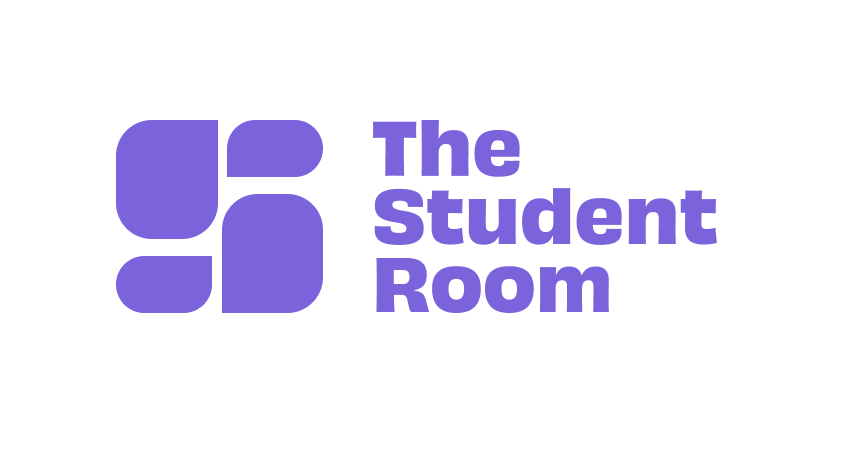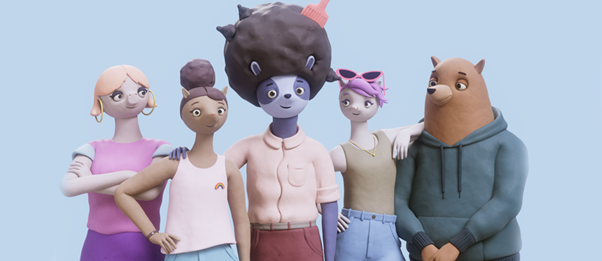Mental health awareness week 2021 – Guest blog by Professor Paul Crawford
The Student Room has been promoting What’s Up With Everyone? a campaign with young people for young people to help build up stronger ways of dealing with life’s challenges.
The latest figures showing increased depression among young people in the last lockdown should not surprise us (ONS, 2021). It is clear that young people, in particular, have experienced psychological distress from prolonged confinement in their homes during the coronavirus pandemic (Mind, 2020; NHS Digital, 2020, ONS, 2020; Public Health England, 2020). While astronauts may have a high tolerance for isolation, young people do not. The research shows that this leads to anxiety, depression and irritability —a state of cabin fever—especially during long dark winters and when outside life is hindered (Crawford & Crawford, 2021).
While adults might be able to generate the kind of protective purpose and goals that we know can buffer against cabin fever, not least perhaps from work activities, young people may find themselves ‘all at sea’ and challenged by the loss of social life, usual activities, face-to-face education and even hope in the future. Such experiences will be more profoundly impactful because of the intense level of waiting and boredom that has visited them during the last lockdown.
As lockdown ends and the weather improves we are all looking to boost our mental health. While young people have been getting the green light to leave their ‘cabins’, meet up with friends again, and get some outdoor relief, The Student Room has been promoting What’s Up With Everyone?: a campaign with young people for young people to help them deal with life’s challenges. The campaign, funded by the Arts and Humanities Research Council, is led by Professor Paul Crawford at the University of Nottingham, who is working with Academy-award-winning animators Aardman (makers of Wallace & Gromit, Shaun the Sheep), an amazing team of young people, and a UK-based clinical and research project family.
Like everyone else, students want to get back to something approaching ‘normal’ life, and the resources provided at What’s Up With Everyone? are all about helping them do just that. The campaign offers a number of practical tools for their journey through school, college, university and the workplace. It focuses on key challenges of loneliness and isolation, perfectionism, competitiveness, independence and harm from social media. Each challenge is taken up by five brilliant new Aardman characters—Merve, Charlie, Tai, Ashley and Alex.
Now we know that one of the antidotes to the experience of lockdown is nature itself. Nature buffers against prolonged confinement and isolation indoors – which brings with it increased anxiety, depression and irritability (Crawford & Crawford, 2021).
Fittingly, given the focus on the benefits of nature in Mental Health Awareness Week, our film examining the dangers of young people comparing themselves to one another on social media sees the character Alex, unhappy at the popularity of Daisy with her thousands of followers, set in a natural garden scene. Soon Alex’s negative thinking takes over and shows as black spiky brambles that drive out the greenery.
Alex adjusts her thinking to like herself more and comes to appreciate her ‘lovely garden’. As she does so, the dark brambles fall back, and sunlight and greenery return. The film conjures up that link between the impact of negative thoughts and unhelpful comparisons. It also evokes how natural greenery and light can combine to deliver a ‘sunny’ disposition.

Nature is blooming as young people are starting to venture back into the light, hopeful of a more predictable and normal future. The daffodils and cherry blossoms are out, the buds are opening on the trees again, and the orchestra of nature has started to get back on stage.
A great way to start the mental health pushback against the pandemic and its lockdowns is to enjoy the art of nature, let our minds rest in its beauty and diversity, talk to the flowers, and hug those trees. Be mindful of the better weather, the colours, and the sounds of nature – let them enter your mind. We can nurture and grow positive thoughts at this time. We can give our minds a wonderful, green light!
Find out more about the collaboration between The Student Room and the WUWE campaign.
Professor Paul Crawford is Director of the Centre for Social Futures at The Institute of Mental Health, The University of Nottingham. He is Project Lead and Principal Investigator for the campaign What’s Up With Everyone? (Grant number AH/T003804/1).
References
Crawford, P. & Crawford, J.O. (2021) Cabin Fever: Surviving Lockdown in the Coronavirus Pandemic. Bingley: Emerald.
IEA. (2020, April). Global Energy Review 2020: The impacts of the Covid-19 crisis on global energy demand and CO2 emissions. Retrieved from:
https://www.iea.org/reports/globalenergy-review-2020
Mind (2020) The Mental Health Emergency: How has the Coronavirus Pandemic Impacted Our Mental Health? London: Mind. Accessed on 14/02/2021:
https://www.mind.org.uk/media-a/5929/the-mental-health-emergency_a4_final.pdf
NHS Digital (2020) Mental Health of Children and Young People in England, 2020: Wave 1 Follow Up to the 2017 Survey. Accessed on 14/02/2021:
https://digital.nhs.uk/data-and-information/publications/statistical/mental-health-of-children-and-young-people-in-england/2020-wave-1-follow-up
ONS (2020) Coronavirus and Higher Education Students: England, 202 November to 25 November. Accessed on 14/02/2021:
https://www.ons.gov.uk/peoplepopulationandcommunity/healthandsocialcare/healthandwellbeing/bulletins/coronavirusandhighereducationstudents/england20novemberto25november2020
ONS (2021) Coronavirus and depression in adults, Great Britain: January to March 2021 – https://www.ons.gov.uk/peoplepopulationandcommunity/wellbeing/articles/coronavirusanddepressioninadultsgratbritain/januarytomarch2021
Public Health England (2020) Research and analysis 7. Children and young people. Updated 17 December 2020. Accessed on 14/02/2021:
https://www.gov.uk/government/publications/covid-19-mental-health-and-wellbeing-surveillance-report/7-children-and-young-people


